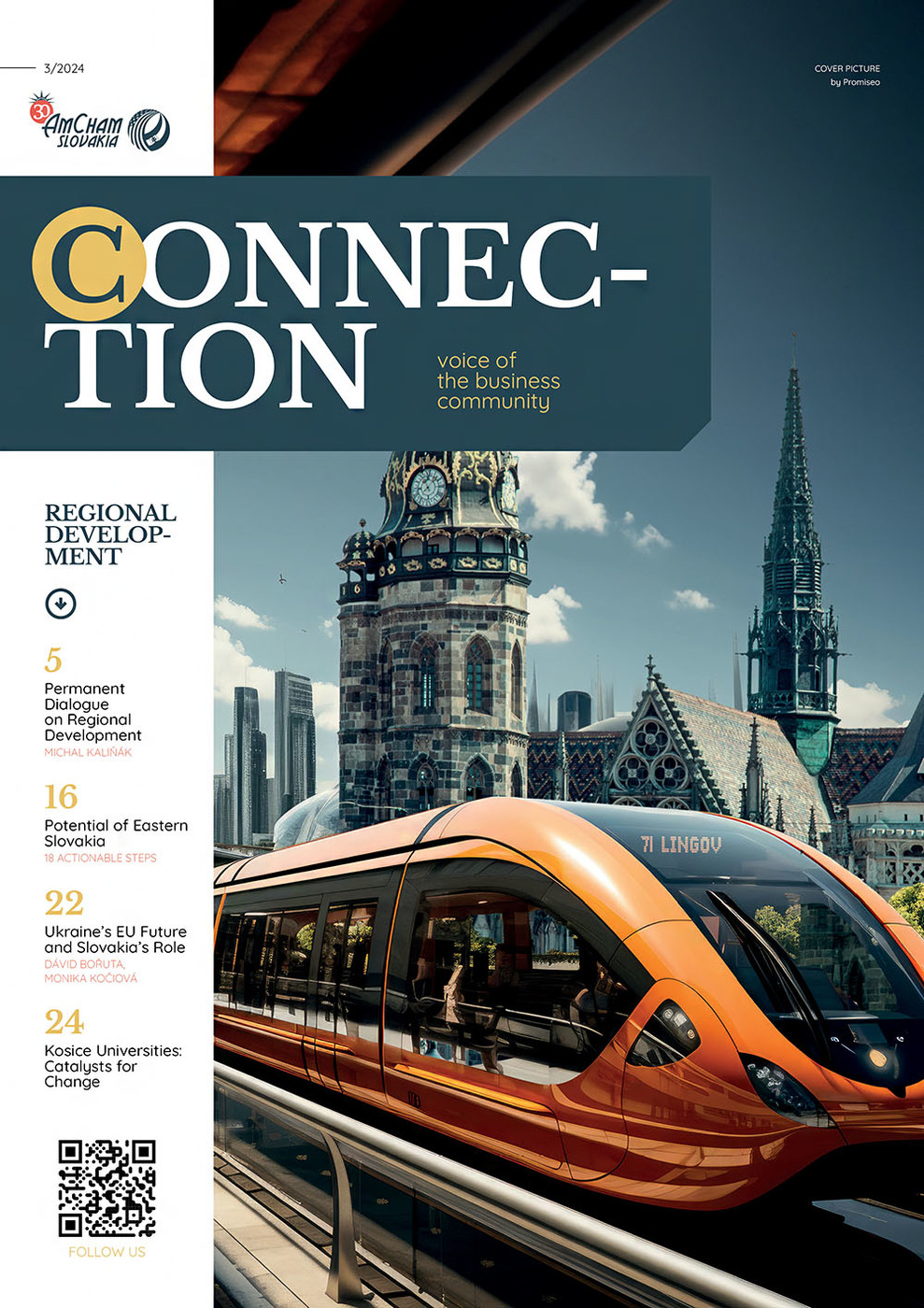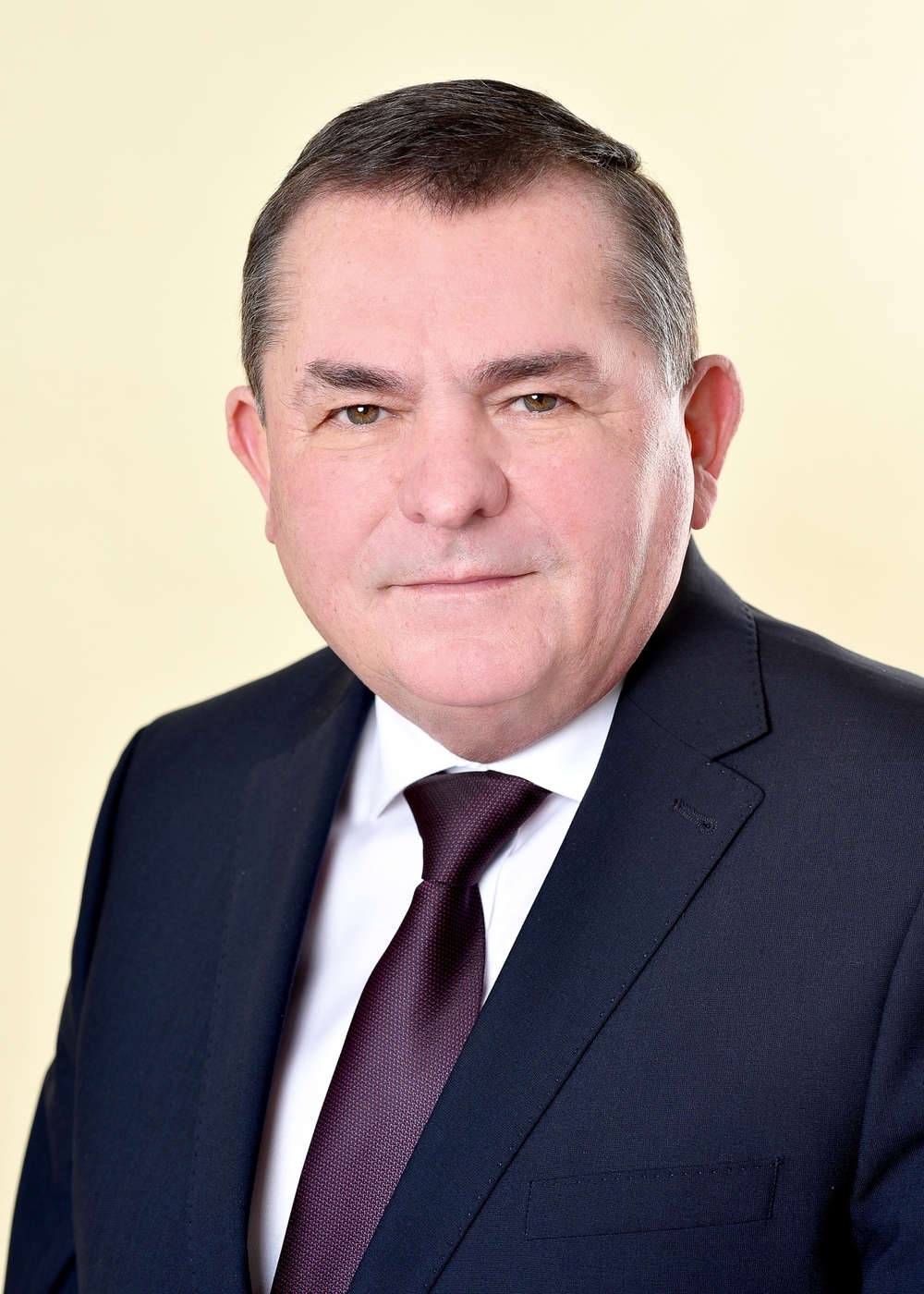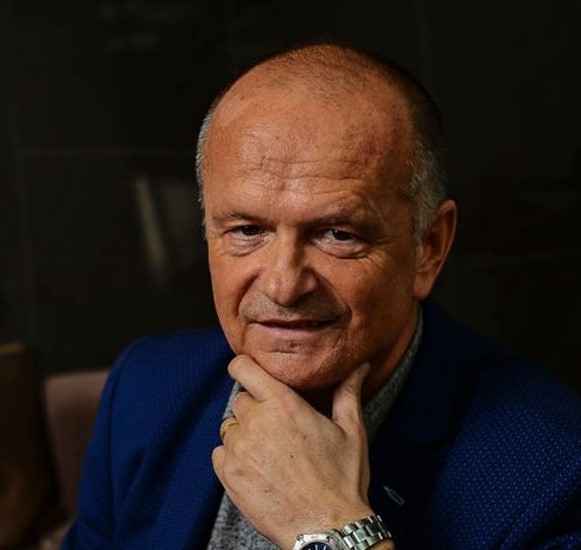These include their closer cooperation with local employers in terms of aligning the curriculum with the labor market needs, supporting the innovation ecosystem, or slowing down the regional brain drain. We had the opportunity to talk to rectors of two of the city’s universities about how they perceive and tackle these challenges.
In what ways does your university currently cooperate with local businesses? Could you highlight any successful partnerships or initiatives?
(JN) The University of Veterinary Medicine and Pharmacy in Košice is a highly specialized university, the only one in Slovakia that trains veterinarians and one of two that train pharmacists. Collaboration with the business sector is primarily focused on entities that provide students with opportunities to gain practical experience and skills. The breadth of practical training is based on European legislative requirements, as these are regulated professions and graduates must be ready to enter practice immediately. The university closely collaborates with the Chamber of Veterinary Surgeons of the Slovak Republic and private veterinarians, owners, and operators of veterinary clinics.
Long-standing collaborations exist with the State Veterinary and Food Administration of the Slovak Republic and the State Veterinary and Food Institute, the State Nature Conservancy of the Slovak Republic, Military Forests and Estates of the Slovak Republic, Tatra National Park, as well as the Department of Cynology and Hippology of the Slovak Police Force.
 The university collaborates with both small and large slaughterhouses in the region, meat, milk, egg, and fish processors such as Dalton, Domäsko, Tauris, Ryba, Tatrakon, Bell, Sabi, Frucona, etc. Among the collaborating entities are agricultural enterprises and animal shelters, where students and educators also volunteer.
The university collaborates with both small and large slaughterhouses in the region, meat, milk, egg, and fish processors such as Dalton, Domäsko, Tauris, Ryba, Tatrakon, Bell, Sabi, Frucona, etc. Among the collaborating entities are agricultural enterprises and animal shelters, where students and educators also volunteer.
Developing the ‘One World - One Health’ project brings close cooperation with healthcare providers such as the University Hospital L. Pasteur, AGEL Hospital Košice-Šaca, East Slovak Institute of Oncology, East Slovak Institute of Cardiovascular Diseases, Academy Specialized Hospital for Head and Neck Diseases in Košice, and others, not only in research but also in the application of the acquired knowledge.
For pharmacy studies, the university has close contacts with the Slovak Chamber of Pharmacists, large pharmacy chains, and numerous smaller pharmacies. It collaborates with Imuna Šarišské Michaľany, as well as healthcare providers.
The university also cooperates with local governments—from regional (Košice Self-Governing Region) through municipal (City of Košice) to local (municipal districts of Košice and municipalities throughout the region).
(DP) Pavol Jozef Šafárik University in Košice has long-established high-quality relationships with regional partners at both the institutional level and within individual faculties and departments. We have been collaborating with Košice IT Valley for a long time, where we are a founding member. This cluster was established to support regional development based on a win-win strategy among the most significant companies, universities, and local and regional governments, primarily focusing on the IT sector. Within the cluster, we collaborate on educational projects for students, employees, and the public. Additionally, we have several partnerships with specific companies, such as T Systems, Deutsche Telekom, Siemens, Globallogic, Lynx, Novitech Group, VSl Software, and Asseco, among others. Our university plays a pioneering role in the EIT Digital consortium, which is European and therefore trans-regional in nature but has a significant impact on our region’s innovation ecosystem.
An essential area where our university’s operation is unimaginable without collaboration is healthcare facilities. Our long-term partners include the University Hospital L. Pasteur, the Children’s Faculty Hospital, the East Slovak Oncology Institute, and the East Slovak Institute of Cardiovascular Diseases. The second group of healthcare facilities we collaborate with, not only in teaching facilities but also in joint projects, includes AGEL, Svet zdravia, and Medirex companies. We have created a patent for optimizing in vitro fertilization with the IVF clinic Gyncare. We also cooperate on long-term research projects with companies like Juhapharm, DC Medical, and others. Within the ESFRI infrastructure ECRIN/SLOVACRIN, we create a network with all significant university and faculty hospitals and highly specialized healthcare facilities for clinical research.
Significant cooperation also exists with all major companies in battery research, evidenced by the fact that our top scientist, doc. Straková Fedorková, is currently the chairwoman of the Slovak Battery Alliance. The most significant cooperation is with INO-HUB Energy. Of course, we also have collaborations in other strategic research areas, such as materials research, chemistry, biotechnology, law, public policy, public administration, linguistics, psychology, and historical sciences. The results of these research collaborations are essential for developing the regional ecosystem and society as a whole.
What kind of support or input from the local business environment would be most beneficial and appreciated by your university?
(JN) Training veterinarians and pharmacists is extremely costly. Continuous care for live animals available to students and researchers 24/7 is particularly expensive. The needs of the only veterinary university in Slovakia are unique and incomparable to other higher education institutions. Therefore, financial or material assistance is always welcome. To ensure the required level of knowledge and skills, it is crucial for us to secure high-quality practical training opportunities with partner entities. Support for scientific and research projects through grant schemes and partnerships is also essential for the university’s future. Currently, UVLF is negotiating with Siemens Healthineers (based in Košice) about collaboration in three key areas: standardization of imaging technologies for veterinary medicine, development of intracardiac ultrasound techniques for human medicine, and research and development of new technologies in heart disease therapy. Companies such as USSK, VSE, and SPP significantly aid in improving our material and technical infrastructure.
(DP) I believe that all the mentioned collaborations are beneficial for both parties, not just for us. The question mentions only local entrepreneurs, but for our university and its components, cooperation with public institutions, public administration, non-profit organizations, research institutions, and other educational units, such as secondary and higher education institutions, is also crucial. In all collaborations, regardless of the subject’s nature, we value the opportunity for internships and practice for our students, collaboration in education, the possibility of obtaining data, and conducting joint research. Many experts from practice help us add high-quality by teaching or serving on expert committees. We cooperate in science and research and strive to advance cooperation into technology transfer.
 Medical education and teachers’ experience are impossible without practice in departments and hospitals. Likewise, public administration, law, and some departments at the Faculty of Arts students and researchers practice, write their theses, or conduct research thanks to cooperation with the city of Košice, city districts, KSK, public administration offices, public institutions, courts, chambers, and many entrepreneurs. Students and researchers at the Faculty of Science appreciate the collaboration with the SAV and several companies.
Medical education and teachers’ experience are impossible without practice in departments and hospitals. Likewise, public administration, law, and some departments at the Faculty of Arts students and researchers practice, write their theses, or conduct research thanks to cooperation with the city of Košice, city districts, KSK, public administration offices, public institutions, courts, chambers, and many entrepreneurs. Students and researchers at the Faculty of Science appreciate the collaboration with the SAV and several companies.
Do you see potential in collaborating with local employers to support research and innovation at the university?
(JN) Given the specifics of the University of Veterinary Medicine and Pharmacy in Košice, our goal is to fulfill the ‘One World – One Health’ concept. This involves linking veterinary and human medicine, food hygiene, environmental protection, and pharmacy in both research and practical application. Joint interdisciplinary research focuses on areas such as regenerative medicine, healthy and functional foods and probiotics, infectious diseases and zoonoses, and pharmacy, including toxicology and biochemistry. For many years, our strongest support for research and innovation comes from collaboration with local partner institutions, solving various scientific and research tasks and projects together: University Hospital L. Pasteur, AGEL Hospital Košice-Šaca, East Slovak Institute of Oncology, East Slovak Institute of Cardiovascular Diseases, Academy Specialized Hospital for Head and Neck Diseases in Košice, institutes of the Slovak Academy of Sciences (Institute of Materials Research SAS, Institute of Parasitology SAS, Institute of Neuroimmunology SAS, Biomedical Center SAS, Center of Biosciences - Institute of Animal Physiology...). Our supporters also include entities that implement research results into practice, Humac being one example.
(DP) We cannot achieve innovations in science and research without collaboration with the region’s most significant employers. Without them, it is practically impossible to validate the “proof of concepts” we create. Collaboration with local partners is essential for joint research projects within long-term strategic research, recovery and resilience plan projects, and other significant international projects. Conversely, we strive to assist small regional companies, which are also significant collaborators and recipients of our research results. An example is the EDIH Cassovium project.
What measures is your university taking to address the issue of brain drain among graduates?
(JN) We see the solution in creating optimal conditions for top-tier teams and leading creative professionals. We want to support young researchers by announcing calls for the Internal Grant Agency and creating postdoctoral positions. Collaboration with advanced research organizations (universities, SAS) is essential. Enhancing the quality of teaching and close cooperation with professional organizations such as the Chamber of Veterinary Surgeons of the Slovak Republic and the Slovak Chamber of Pharmacists are also crucial. Opportunities for practical training with partner entities foster closer ties, often resulting in graduates staying at these workplaces.
(DP) The university actively contributes to preventing brain drain. We work on this by constantly striving to improve the quality of education at our university, including new modern subjects and study programs, and increasing opportunities for internships and mobility for students. We also actively highlight this problem with other stakeholders. Several initiatives have been recorded in our region, such as “East is not an Exit” or discussions at Košice IT Valley conferences or at our UPJŠ, where representatives of stakeholders address the brain drain problem. As part of our active participation in an event organized by AmCham Slovakia, a strategy was formulated to help prevent young people from leaving the region.
What is your long-term vision for the role of your university in the local and regional innovation ecosystem?
(JN) Our long-term goal, among other things, is to collaborate with practice and transfer knowledge. We aim to support and develop all forms of cooperation with practice, scientific workplaces, institutions, and professional associations. In collaboration with practice, we aim to guarantee professional practical education and expand the offer of practical education programs and consulting activities. Our key strategic objective is to ensure the transfer and utilization of new knowledge from scientific and research activities of the university’s workplaces into practice. Our participation in regional associations and clusters helps achieve these goals. Notably, UVMP has a long-standing close cooperation with the other two Košice universities—Pavol Jozef Šafárik University and the Technical University of Košice—on many long-term extensive scientific and research projects.
Our university, along with Pavol Jozef Šafárik University, the Technical University, Košice Self-Governing Region, and the City of Košice, is a partner in the Košice Region Innovation Center (ICKK). Its goal is to stop the brain drain from Eastern Slovakia, coordinate the development and implementation of innovations and new technologies into practice, and elevate the economic and associated social level of the region to the EU average. We are also members of the Košice New Industry Cluster (CNIC), founded by The Košice Self-Governing Region, the City of Košice, Pavol Jozef Šafárik University, the Technical University, and the University of Veterinary Medicine and Pharmacy, along with the Slovak Academy of Sciences, University Hospital L. Pasteur Košice, and Košice company Cassovia Discovery Park, Ltd. Its main goal is to create a new modern industry in Eastern Slovakia through close cooperation between universities, scientific institutes of the SAS, and private high-tech industry with the support of local governments. The main focus will be on biomedical research, new materials, information technologies, environmental protection, and green energy.
(DP) As a bearer of new ideas, the university should be a key player in the regional innovation system. In this sense, we expect ourselves to be trendsetters and innovators.
Jozef Nagy, Rector of University of Veterinary Medicine and Pharmacy in Košice
Daniel Pella, Rector of Pavol Jozef Šafárik University in Košice




Follow us